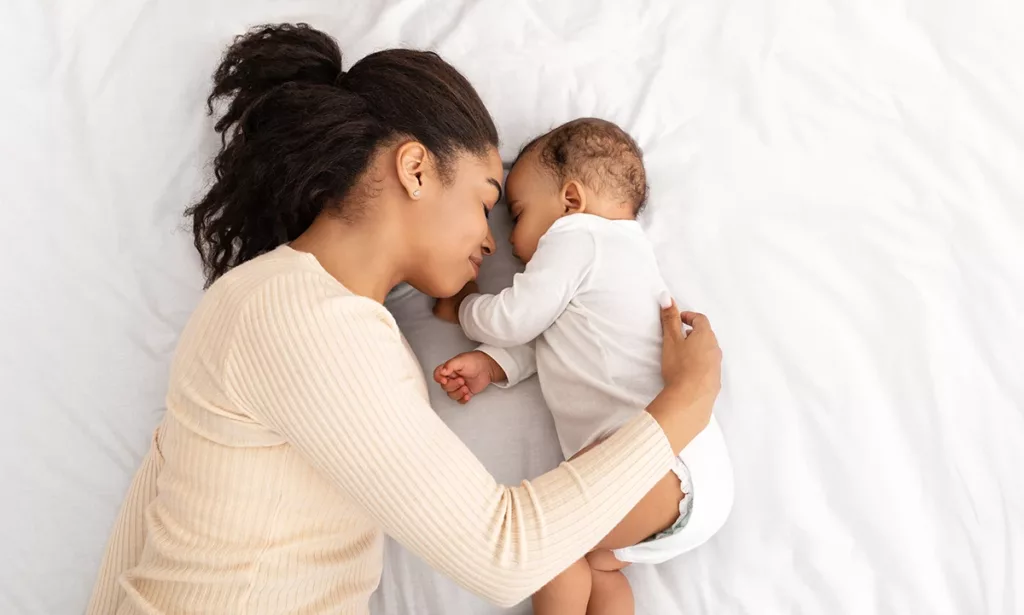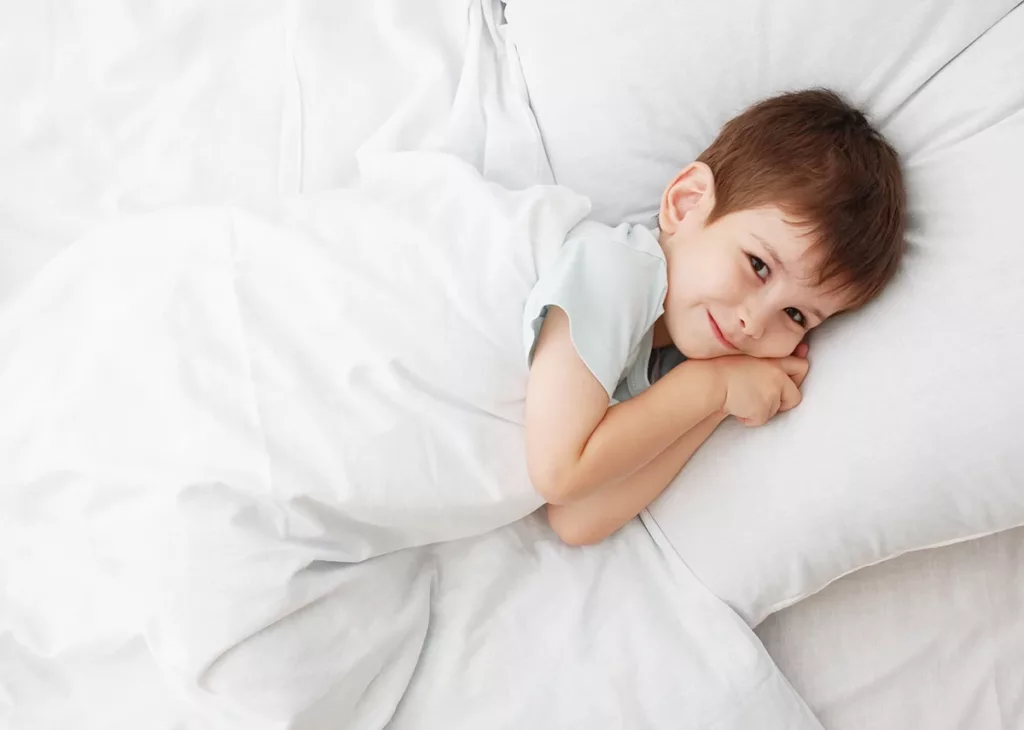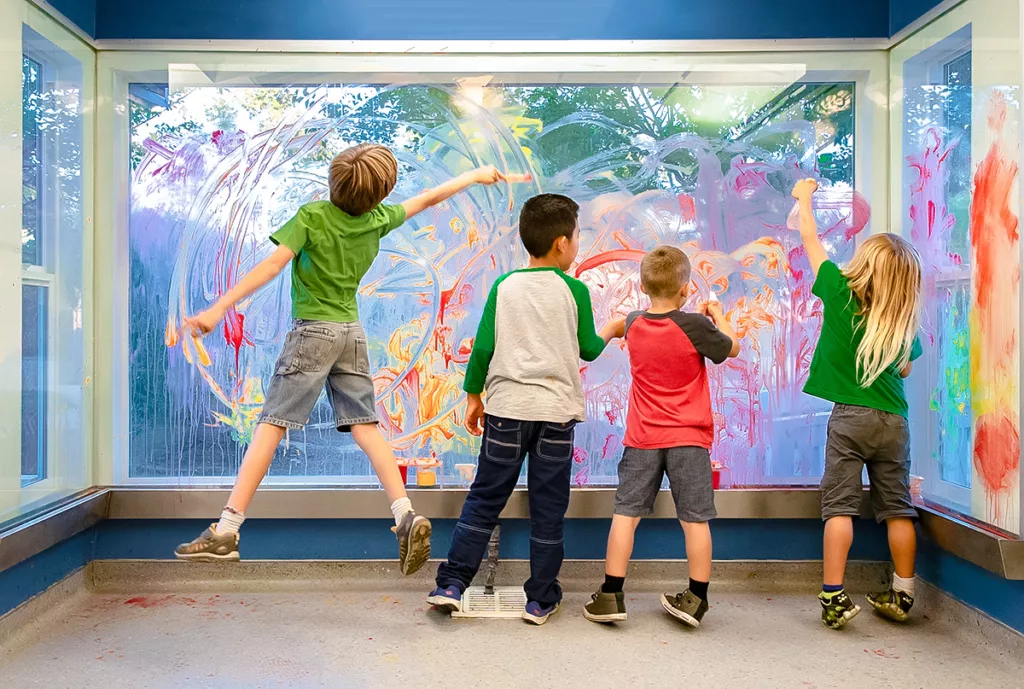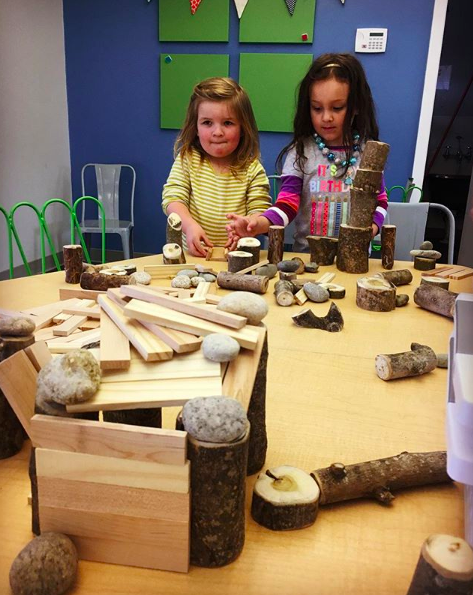
Being a caregiver to children brings many joys and challenges, and one crucial aspect is ensuring they get enough quality sleep. Sleep plays a pivotal role in children’s physical, mental, and emotional development, laying the foundation for a healthy and vibrant future. But how much sleep do kids need to ensure they get the rest they need to thrive?
While every child is unique, this blog outlines evidence-based guidance on the recommended amount of sleep children need at different ages.
The Benefits of Getting Enough Sleep for Young Children
Ensuring that young children get enough sleep is not just about a good night’s rest; it’s an investment in their overall health, well-being, and development. In fact, according to research by the American Academy of Sleep Medicine (AASM), children who get the recommended amount of sleep on a regular basis show improved:
- Learning
- Behavior
- Attention
- Memory
- Mental health
- Physical health
- Emotional regulation
- Overall quality of life
Sleep Recommendations for Children by Age

Based on the same study by AASM, how much sleep kids should be getting is typically dependent on their age. While every child is different, the chart below details the average number of hours of sleep kids need to promote optimal health according to their research:
| Development Stage / Age | Average Hours of Sleep |
|---|---|
| Newborns: 0-3 months | 14-17 hours (with naps) |
| Infants: 4-12 months | 12-16 hours (with naps) |
| Toddlers: 1-2 years | 11-14 hours (with naps) |
| Preschool: 3-5 years | 10-13 hours (with naps) |
| School Age: 6-13 years | 9-12 hours |
| Teens: 14-17 years | 8-10 hours |
While these recommendations can be a useful reference, it’s important to remember that the right amount of sleep for individual children may differ. The best way to determine what constitutes a healthy sleep duration for your child is to consult with their pediatrician or primary care provider.
Newborns (0-3 months)
Welcoming a newborn into your life brings joy and, let’s face it, some sleepless nights. Babies between 0-3 months old rarely sleep through the night uninterrupted. However, in a 24-hour period, newborns typically sleep anywhere from 15-18 hours.
Infants (4-12 months)
Between 4 and 12 months, infants generally sleep 12 to 16 hours. At this age, some babies may start sleeping longer at night, but they will still derive most of their overall sleep from naps throughout the day.
Why Do Babies Need So Much Sleep?

During the first 12 months of life, babies’ brains and bodies are rapidly developing, and sleep plays a crucial role in this process. Their sporadic sleep patterns are also influenced by their need to eat so frequently to get the nutrients and fuel they need for healthy development and their tummies being so small.
Toddlers (1-3 years)
The average amount of sleep recommended for toddlers is around 11 to 14 hours a day. It’s at this development stage that most children begin to regularly sleep through the night. Naps throughout the day are still recommended, but their total duration typically decreases to about 1 to 2 hours altogether.
Preschoolers (3-5 years)
By the age of 3 to 5 years old, kids generally thrive on 10-13 hours of sleep per night. For many preschoolers, nap time is getting shorter and shorter, and resistance to naps regularly becomes much more common.
When Do Children Stop Taking Naps?

While every child is unique, most begin to phase out regular naps around the age of 4 to 6. This is usually a natural progression influenced by their activity levels, expanding social interactions, and ability to get most of their sleep at night. As children become more engaged in daily activities and their routines become more involved, their sleep patterns tend to naturally transition to support this.
School-Age (6-12 years)
The individual needs of every little learner can vary significantly, but by the time children are in primary school, they should be getting about 9-12 hours of sleep every night. Balancing their school schedules and extracurriculars with their sleep needs can be challenging but is crucial to supporting their development.
Teenagers (13-17 years)
Despite having more demanding schedules and blossoming independence, most teenagers should still be getting 8-10 hours of sleep for optimal physical, cognitive, and emotional development. There is usually a major shift in their sleep cycle when teens start going through puberty as well. Their biological clock tends to naturally swing towards staying up later, even though this typically conflicts with school’s early start times.
How to Help Students Maintain a Health Sleep Schedule

When it comes to sleep schedules, consistency is key. Maintaining a regular bedtime and wake-up time, even on weekends, helps regulate the body’s internal clock. Encouraging regular physical exercise throughout the day, creating a comfortable and dark sleeping environment, and limiting screen time before bed can also contribute to better sleep quality. Additionally, avoiding caffeinated beverages later in the day, and investing in a supportive mattress can positively impact overall sleep patterns.
More Resources on Early Childhood Development from the Children’s Museum of Sonoma County
Understanding and supporting the sleep needs of children from infancy to adolescence is pivotal for their overall growth, development, and well-being. As caregivers, we play a crucial role in creating a nurturing environment for our children and part of that includes fostering healthy sleep habits.
At the Children’s Museum of Sonoma County, we strive to provide our community with the most accurate, up-to-date information and resources. For more insights on early childhood development, we invite you to explore our PLAYology Playbook blog. Discover more articles covering a range of topics aimed at nurturing the well-rounded growth of children.












